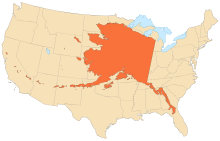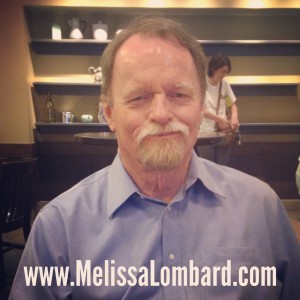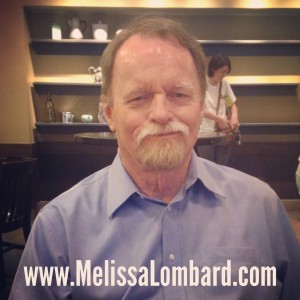The Cup: Latte for Steve, and a Green Tea Latte for me.
The Background: Mutual friend and Cup 26, Peter Strople introduced Steve and I briefly at Starbucks one morning. Peter suggested we get together another time to properly visit, and indicated that Steve was a man with a big story and that he’d be perfect for the project. Steve agreed to meet again, and here we are.
Steve does, in fact, have a big story. Big? No – huge! Enormous, maybe. It’s full of adventure, excitement, defeat and legacy. Ups and downs, friends and enemies. And we’ll cover it all shortly, but first, some:
Common Grounds:
- What’s a food you can’t live without? Fried chicken.
- How did you make your first buck? Cropping tobacco. {Steve went on to describe this work in greater detail. It was quite interesting, and if I had to sum it up in just a few words, I’d call it “back-breaking work that’s to be avoided if you can help it.”
- What is the best place to eat in Austin? Curra’s Mexican Grill. It’s kind of a hole-in-the-wall place, but the food is good. I like to take my out of town guests there.
- What is the last thing you fixed? A door I knocked down.
- What’s your favorite way to unwind? Reading a book.
- What is the most impactful book you’ve read? Hard to say; I’ve read a lot. Some people only read four books in their life. I read three books last week. So there’ve been too many to mention.
Getting Started
Steve was born in Virginia and grew up in North Carolina. He earned his law degree and became a maritime lawyer, practicing in Norfolk. When the time came for Steve to set off for a bigger adventure, and hopefully bigger opportunities, he thought California seemed like the right destination. Before making the long trip out West, he paid a visit to some friends, and a seed was planted that would change the trajectory of his life.
Changing Course
Isn’t it strange, when you look back on your life and the pivotal moments, how interesting the root cause sometimes is? I think about my own life and how I ended up in Texas. It was my college internship and I was torn between Maryland and Texas. The deciding factor was an old boyfriend. And no, I did not travel 1500 miles chasing after a boy. Well, not that I would have been above that. It just happens to not be the case here. Said old boyfriend was from Houston, and I had been there once to visit him and meet his family. The internship was 70 miles away in Galveston, a small beach community, and because I had been close, it felt less scary. Not at all familiar, but yet not completely foreign.
Steve was headed to California. The wife of his good friend asked why, and then added, “If it was me, I’d go to Alaska. That’s where you will find adventure.” Alaska? Steve said he brushed her comments off, thinking, “I don’t know anyone there. I don’t even know anyone who’s ever been there.” And off to California he went.
North, to Alaska
But not long after getting to the Sunshine State, Steve realized finding a decent job was harder than he had expected. The job he had lined up before heading there suddenly paid only half of what he’d been promised. And the prospects weren’t looking good. Steve got in his car and drove to Seattle, where he took his friend’s advice, hopped on a plane, and headed north to the 49th state.

Interesting facts about Alaska: it’s the largest state in the United States in land area at 586,412 square miles, over twice the size of Texas, the next largest state. Alaska is larger than all but 18 sovereign countries. Counting territorial waters, Alaska is larger than the combined area of the next three largest states: Texas, California, and Montana. It is also larger than the combined area of the 22 smallest U.S. states. Alaska is home of the tallest mountain in North America, Mount Denali, but only home to 700,000 people, ranking 47th in population, and 50th in population density. Alaska is home to quite an impressive array of wildlife. I was surprised to learn there are more caribou in Alaska than people. Approximately 950,000 of them. Wow!
Steve loved Alaska. And he was wrong about not knowing anyone there. Shortly after arriving, Steve went to a local Bar Association meeting and discovered a friend from Washington, DC. In fact, the pair had taken the bar exam together. His friend was in Alaska working as a newspaper reporter.
Getting Connected
In addition to this old friend, Steve made some other great connections right off the bat, and one in particular really took Steve under his wing and didn’t stop until he’d found Steve a job. Steve ended up becoming Assistant District Attorney – a job that didn’t pay well, but if he agreed to travel to the remote areas of Alaska, he’d earn an extra per diem, and that was enough to get by on. Little did he know at the time that this travel into the remote villages would set the stage for his gubernatorial victory some years later. Steve tells me, “I could walk into those villages today and I’d know three generations of family members.”
In total, Steve called Alaska home for 33 years. He was in and out over those years, as he spent a fair amount of time in Washington DC. Steve served two terms in the Alaska House of Representatives. He ran for governor once and lost, but undeterred, he tried again four years later and won. Largely because of the native villagers, who voted for him 85%.
Making A Difference
Steve recalls those years in Alaskan government fondly. In fact, he calls them the best years of his life, adding, “We had to reinvent Alaska.” Steve said he was surrounded by a bunch of young guys who were fired up and wanted to make a real difference. They saw the Trans-Alaska Pipeline coming, and they knew it would change everything for Alaska. They wanted to make sure that change was in the people’s favor.
Steve is proud of what they were able to accomplish. He names a few highlights, such as setting up the Permanent Fund. He says, “We knew it wasn’t right for the people today to spend all the oil revenues and leave those who came later holding the bag. We learned our lessons from the Gold Rush. So we set up the Permanent Fund, which set aside a certain percentage of the revenue from the oil, and created we a Constitutional Amendment that says the principal cannot be touched. Today, there is over $50 billion in that fund. It’s the best publicly-run fund it the US.”
Another issue that had gone on for decades was a wildly fluctuating budget. When there was oil money, the budget was huge, but when the money dried up, so did the budget. Projects were constantly being started, but never finishing before the money ran out. Steve is proud to tell me about another Constitutional Amendment that says a budget can’t go up more than 10% from the last year – eliminating the wild swings. And years where there was money left over, it went into a Budget Fund to be used when times were tougher. Today, that fund has over $14 billion.
Work Together
Steve owes a lot of his success to teamwork. He tells me, “Republicans, Democrats, we didn’t care. We just happened to control the flow. If a Republican had a good idea, we just stuck it in there. We didn’t care who invented it. We were all friends.”
I wanted to know how Steve handled the nay-sayers. He told me, “The friends I had were friends from before I got into politics. You don’t really make friends in politics. You make temporary allies and permanent enemies.” Steve believes that knowing this going in makes a big difference. Bottom line, politics isn’t for the faint of heart – or for those with thin skin.
It’s OK to Be Proud
We talk a bit about his three grown children – two daughters and a son. I can tell his is proud of who they are and all they have accomplished. One daughter has two science degrees, the other was part of starting Fox Network, worked on the Oprah show and runs the Disney Channel. His son is finishing law school and will likely work for a technology company. Obviously very bright and successful kids. When I ask him if he’s proud, he says, “They turned out all right, that’s for sure. People might be tempted to think, ‘I must have had something to do with that.’ But I know better. It wasn’t me. It was all them.”
Traveling Man
How about a bucket list? Steve says he’s done everything on it. He recalls a time in his late 30s or early 40s, when he was tallying up all the countries he’d traveled. Even at that age, he was up to nearly 50 countries.
Some of those travels were during his time as a newspaper reporter during the Vietnam War. He talked to me about the dangers of reporting from fire zones, and said you really had to consider whether or not you had a story before you hopped on a helicopter and went into a firefight. Of the ones who just went, without much consideration to the story, “Some lived to regret it, and some didn’t live.” Steve said he did a little research and learned that of the reporters who he was working with and who he considered to be friends, only 50% survived.
Big Issues
What is the biggest issue facing society today, according to Steve? He says, “It’s governance. Which is not the same as government. Governance is what the government is supposed to do. It’s the decision-making process that drives the whole thing. Not the politics. In my opinion, democracy is an ongoing experiment – and right now, it’s failing.”
Steve goes on to talk about risking your popularity in order to accomplish things. He says, “What’s popular has already been done. The rest is either unpopular or no one cares. No one wants to be unpopular, and their focus from day one is getting to a second term. So politicians just pass the buck – and the system is crumbling.”
I want to know how close to reality House of Cards is. According to Steve, it’s a little over the top, with all the murdering. But otherwise, not far off. Well, that certainly explains a lot.
If Steve had 30 seconds to make a speech to the world, his message is this: “We’re all in this together. A lot of people believe that it’s us vs. them, or me vs. them. Or they think, ‘I hate those people.’ For a lot of people, there are whole segments of the population that they hate, but that they don’t even know. Democrats do that. Republicans do that. It’s something to think about. Like it or not, we’re all in this together.”
Steve’s story offers a reminder that in life, sometimes you need to do what’s right, and not what’s popular. No one wants to make enemies, but at the end of the day, looking back at the legacy you left is worth a whole lot more than the temporary friendships you lost in the process of doing the right thing. People who know you and love you will support you and stand by you. Those who are only there conditionally, aren’t really there at all. So don’t let their opinions dictate the choices you make. Do what’s right, treat people well, and remember, we’re all in this together.



Melissa great job! Steve is a national treasure. Thank you for sharing his story.
If you see Steve Cowper, tell him his mother (Stephenie) gave my mother (Frances) a heart-of-pine cupboard that now sits in my dinning room. They were fast friends and met through St. Mary’s.
Very interesting story. I know its nice to hear what family are doin or had done. I haven’t met Steve before but I know according to family tree we are related. Thanks for sharing story.
Tell Steve, hello…an old friend that I still admire to this day for all he did for Alaska.